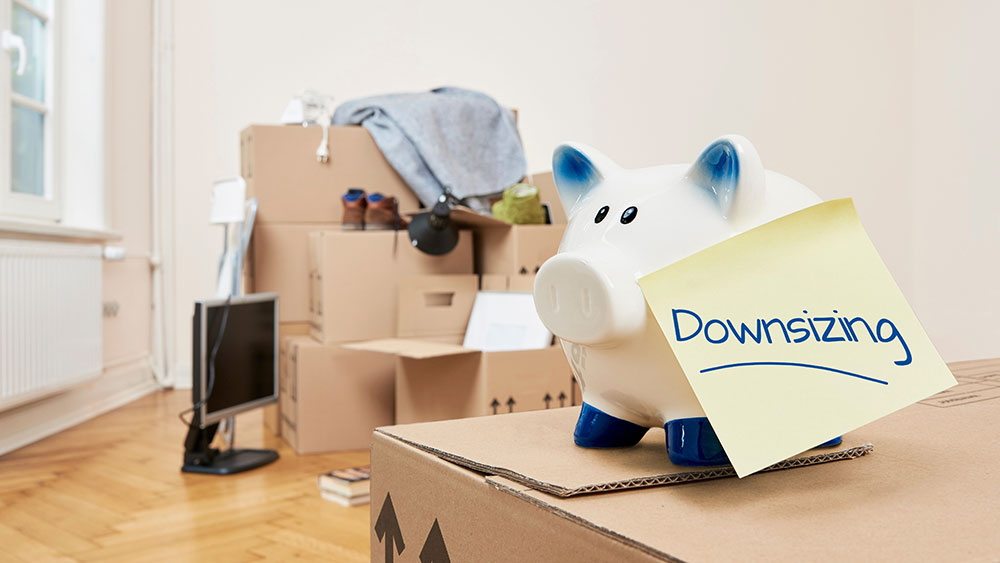
Homeownership continues to be a goal for many people, with it being a sign of stability and financial capability. And for young professionals, it’s often considered an important milestone in their journey toward a secure future.
Furthermore, many believe owning your residence is a good investment that will pay off in the long run.
However, economic landscapes and homeowners’ lifestyle goals continue to evolve over time. Therefore, downsizing to a smaller home benefits many homeowners for various reasons, including lowering expenses, generating additional income, and making a lifestyle change.
Downsizing your home means moving to a smaller residence, including selling your current residence and buying a smaller one. For homeowners looking to save money or simplify their lifestyle, it’s an attractive option, though it requires serious consideration and planning. If you’d like to know if it’s time to downsize your home, here are some signs to consider.
1. Housing Costs Exceed Your Budget
The Federal Housing Administration suggests homeowners limit their budget for a mortgage to 31% of their gross monthly income. This percentage is ideal because it allows homeowners to keep more of their income for other expenditures and savings.
Paying more than this allocation for housing can make someone “house rich and cash poor” because of running short of money to cover food, transportation, and emergency expenses. Moreover, having less money for savings and other forms of investments can result in most of your assets being non-liquid.
To ensure your income adequately covers your expenses, you can consider downsizing your home to a smaller property with a lower mortgage. Then, you’ll be better able to manage your budget and save some of your income.
2. You Want to Earn an Income From Your Property
The National Institute on Retirement Security (NIRS) reported that 75% of Americans might have inadequate retirement funds when they reach their senior years. On top of this figure, around 21% of the working population has yet to save before retirement age. Therefore, some homeowners see an earning opportunity by transforming their property into a rental unit.
By downsizing to a less expensive home and keeping your existing house as an investment property, you can generate income while lowering your living expenses.
3. You Want to Change Your Lifestyle
A lifestyle change is an excellent reason to downsize your home.
One way downsizing can help you transition to a new lifestyle is by minimizing home maintenance tasks. For instance, moving to a smaller place could mean less time tending to a yard or having fewer rooms to clean.
On the other hand, suppose you’re anticipating a busier time at work or having more responsibilities in other aspects of life. In this case, the time you’ll save by living in a smaller home can be significantly helpful.
Besides this, living in a smaller home may be ideal for those who want a more minimalistic lifestyle. For example, 36% of empty nesters in the U.S. plan to downsize their homes. The sudden change in life circumstances influences many homeowners to simplify their lifestyle since they’ll have fewer responsibilities at home. For many empty nesters, these changes begin with moving to a smaller home.
Many other life events may require moving to another home, such as starting a new job or relationship, opening a business, or moving closer to family. In these cases, it may be the perfect time to explore downsizing and see how your lifestyle changes suit your needs and preferences.
Conclusion
Downsizing your home is not just about moving to a smaller residence. It can be an exciting and adventurous time for many homeowners.
Apart from the location change, you’ll experience significant changes in your lifestyle, budget, time, and other aspects of life. You can even generate income by downsizing to a smaller home and converting your existing house to investment property.
One of the best ways to begin downsizing your home is to speak with your real estate agent to develop a plan that can include a valuation of your current property and research about neighborhoods to buy your next home.
© 2022 xpertRealtyMarketing. Sign up to have real estate articles delivered to your website.
